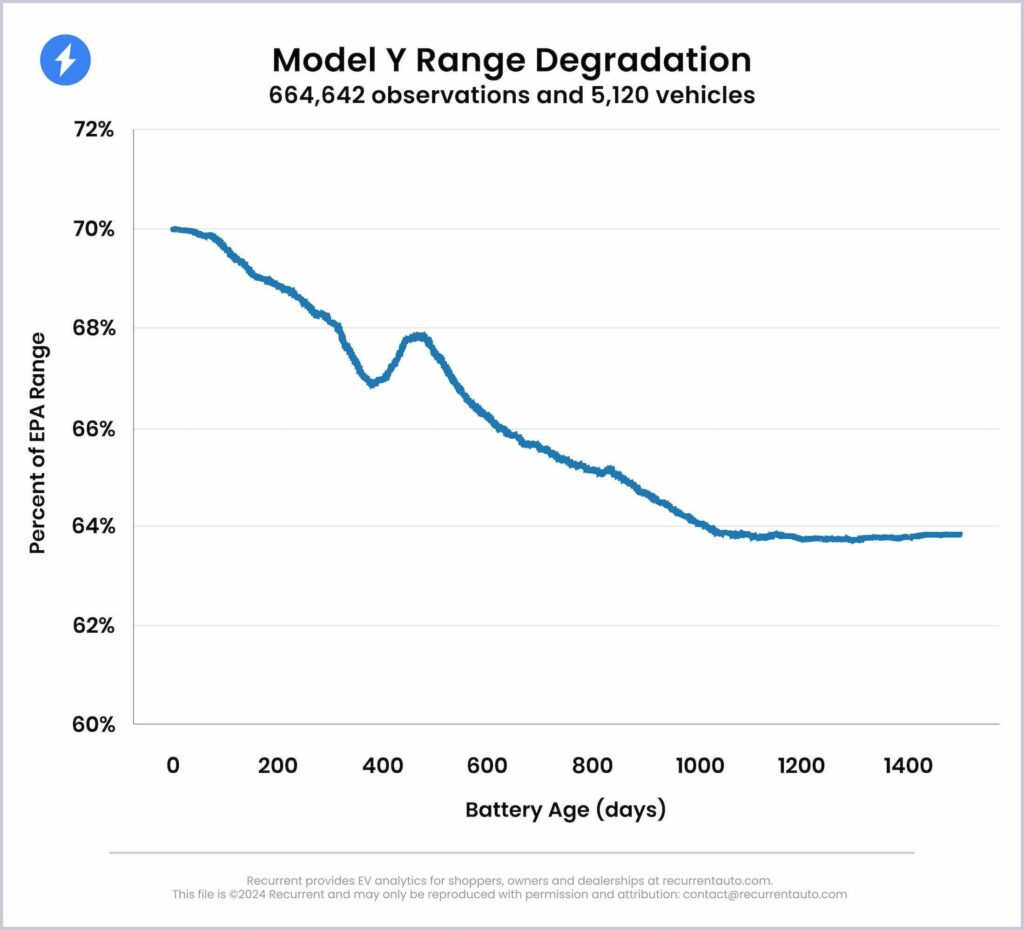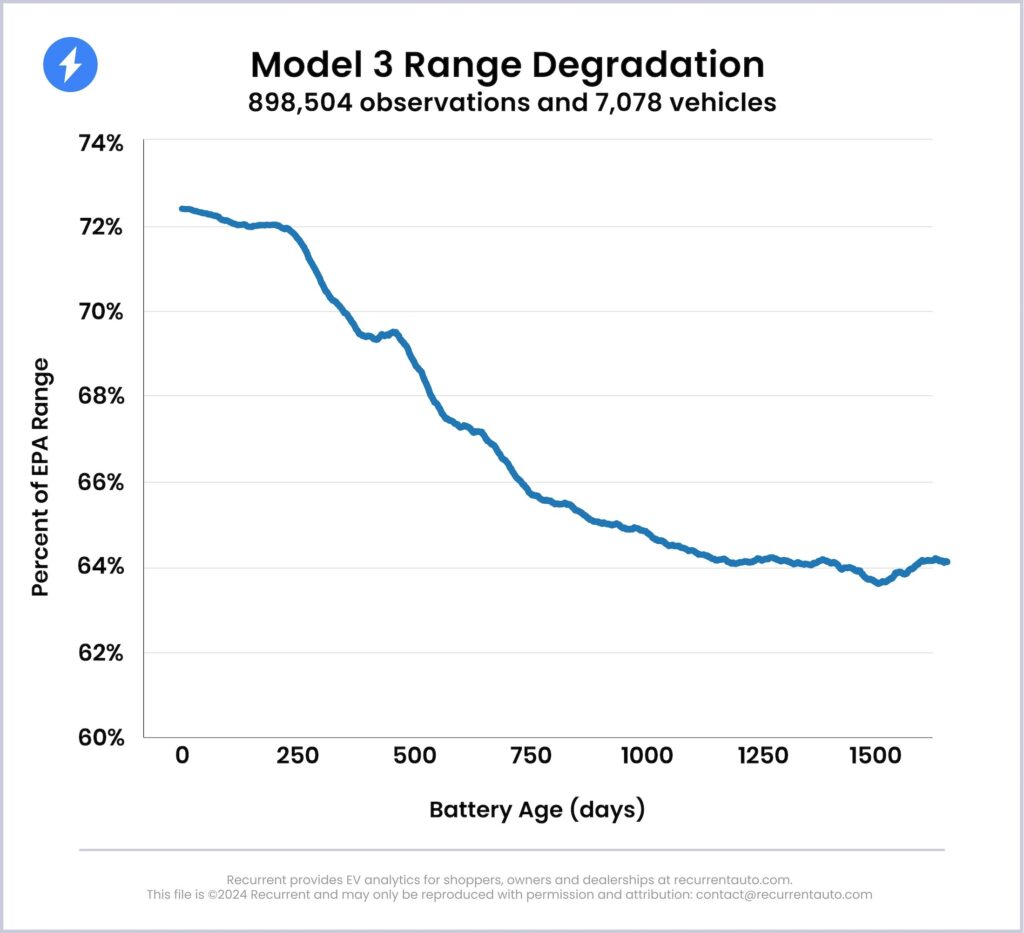- Tesla Model 3 and Y batteries could deliver less than 65 percent of their original EPA range after three years.
- Data comes from analysis of 14,000 Teslas by Recurrent.
- Tesla guarantees batteries for 70 percent of original health for eight years or 100,000 miles.
How would you feel if you bought a new Toyota Corolla today and its fuel tank shrank by a third in three years’ time? Our guess is you’d boycott Toyota forever. But that’s effectively the situation some Tesla drivers are facing, the authors of an EV study say.
A new report claims many of Tesla’s Model 3 and Model Y EVs are delivering only 64 percent of the original EPA range after just three years due to battery degradation. A study involving 1.6 million observations of 14,000 Teslas by Recurrent that tracked the health of batteries showed a marked reduction in available range by the three-year point.
Related: Tesla Driver Hit With $19k Battery Bill Tells EV Drivers To Stash That Money They Saved On Gas
Recurrent notes that batteries degrade in an S-shaped curve, performance only falling slowly for the first few months, then dropping off significantly in a linear fashion for the next two or three years, before levelling out at a sub-optimal level. They’ll then maintain this level for several years before failing altogether.
It’s important to acknowledge that in the Recurrent’s graph showing battery health dipping to 64 percent of EPA range after three years the EVs don’t start at 100 percent. When new, the Model Y is only rated at 72 percent of the official EPA range, and the Model 3 at 70 percent, which makes the drops seem far less alarming.
But even still, it’s clear that during the normal three-year ownership period, a new Tesla is going to offer far more range when you take the keys (or card thing) from your dealer than when you hand them back. And it’s interesting that the batteries in both models briefly improved in performance around the 18-month mark, before carrying on dropping at the same rate as before.

The good news for Tesla drivers is that both the Model 3 and Model Y are covered by long warranties that guarantee the batteries will deliver 70 percent of their original health for eight years or 100,000 miles (161,000 km). Some rivals offer even more protection, with warranties stretching cover to 10 years and the same mileage.
Despite the drop-off in EV battery health (which affects all EVs, not only Teslas), Recurrent says that outside of big recalls only 2.5 percent of EVs have had their batteries replaced, that number falling to less than 1 percent for cars built since 2016. But when the cost of replacing a battery can exceed the used value of the EV, it’s not hard to see why drivers will put up with diminished range.

Image credits: Recurrent




